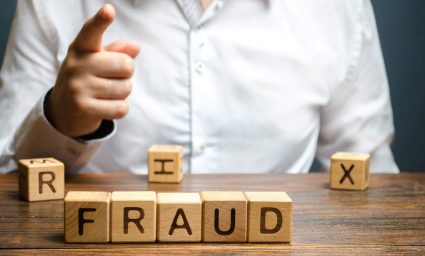 If you find yourself navigating through financial difficulties, it’s common to feel overwhelmed and uncertain about the next steps to take. Managing daily living costs can be an exhausting challenge, and during these times, offers that appear to be extraordinarily generous may seem particularly tempting. While we consistently advise against engaging with high-interest payday loans or accumulating excessive credit card debt, it’s essential to stay vigilant even when faced with seemingly trustworthy financial assistance options. Often, the funds that seem readily available are meticulously crafted traps set by cunning scammers aiming to take advantage of your vulnerable situation.
If you find yourself navigating through financial difficulties, it’s common to feel overwhelmed and uncertain about the next steps to take. Managing daily living costs can be an exhausting challenge, and during these times, offers that appear to be extraordinarily generous may seem particularly tempting. While we consistently advise against engaging with high-interest payday loans or accumulating excessive credit card debt, it’s essential to stay vigilant even when faced with seemingly trustworthy financial assistance options. Often, the funds that seem readily available are meticulously crafted traps set by cunning scammers aiming to take advantage of your vulnerable situation.
Currently, a wide array of scams specifically targets individuals experiencing financial vulnerabilities, making it crucial to remain informed and cautious. A vital rule to remember is this: if an offer sounds too good to be true, it probably is. In this comprehensive guide, we will delve into various scams that prey on those grappling with financial challenges, arming you with the knowledge necessary to distinguish between genuine opportunities and deceptive schemes that could potentially lead to severe financial consequences.
Know Your Rights to Safeguard Your Tax Refund Claims
There are legitimate methods through which you can successfully claim tax refunds for various expenses, including work-related tools, uniforms, and travel mileage. However, these processes require working with a reputable tax rebate services firm, which will necessitate granting them access to your personal tax records. It’s critical to understand that no governmental agency, including HMRC, can accurately determine your eligible refund without your active participation or consulting with a qualified tax adviser. Therefore, exercise caution when confronted with unsolicited messages claiming that “HMRC has a tax refund of £261 awaiting your attention.” These communications often feature realistic refund amounts, cleverly avoiding the outrageous claims usually associated with other scams, such as the notorious Nigerian Prince schemes. Instead, these messages can direct you to websites where you might unwittingly share sensitive information, leading to identity theft or significant financial losses.
To verify if such communications are indeed scams, take the time to meticulously scrutinize the sender’s information. If you receive a text message, ensure you check the originating phone number for authenticity. It’s advisable to refrain from responding to such messages and consider reaching out to HMRC directly for confirmation. Be aware that HMRC typically communicates through letters or emails sent to your registered address, rather than unsolicited text messages. Moreover, you now have access to your own online tax account, where you can find notifications directly from HMRC. If an email lands in your inbox, examine the sender’s address closely to confirm it originates from an official HMRC domain. Always avoid clicking on any links included in suspicious messages to protect your personal information.
Essential Strategies to Avoid the National Insurance Number Scam
Recent reports, including those from the Daily Express, indicate that numerous individuals have fallen victim to the National Insurance scam, which primarily unfolds through phone calls. This method sets itself apart, as scammers may contact you on your landline or mobile device. The scam often begins with a distressing message claiming that your national insurance number has been compromised. This alarming tactic is designed to instill a sense of urgency, pressuring you to press a button to speak with a representative who can assist you. However, this frequently results in incurring premium call charges while the scammers collect your personal information.
To determine whether such a call is a scam, keep in mind that legitimate organizations will never ask you to press a button to continue a conversation. If you are uncertain about the legitimacy of the call, simply hang up and conduct a quick online search for the phone number in question. A brief investigation can often reveal whether the number is associated with known scams, enabling you to protect your personal and financial information.
Recognizing and Preventing DPD or UPS Delivery Scams
Another prevalent scam involves receiving unsolicited texts or emails indicating that a parcel is awaiting your attention. These messages typically prompt you to click on a link to provide personal data, which serves as a significant red flag for potential fraud. To safeguard yourself, meticulously assess the source of the email. Scammers often use distorted or unusual email addresses that do not align with those of legitimate businesses. Furthermore, review any recent orders you’ve placed on platforms like Amazon or eBay; these services usually provide comprehensive tracking details for your convenience.
It’s essential to note that while carriers like DHL may impose duties on international shipments, they will always furnish you with clear details regarding your delivery and its origin. If you receive vague messages about package deliveries without having placed prior orders, exercise extreme caution. Staying informed about personal finance scams is vital for protecting yourself from falling victim to such tactics. If financial struggles make these fraudulent offers seem appealing, consider reaching out to us; we may assist you with our debt consolidation loans designed for individuals with bad credit. Our commitment is to help you navigate your financial challenges securely and effectively.
The Article Finance Scams to Watch Out For Was Found On https://limitsofstrategy.com




Navigating financial hardships truly tests one’s resilience. I’ve seen friends get caught in the alluring traps of seemingly good offers during tough times, only to end up in worse situations. It’s such a crucial reminder that some “helpful” options can quickly lead to spiraling debt.